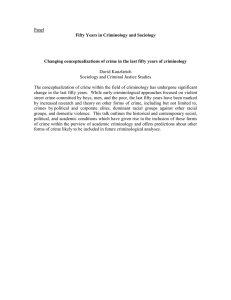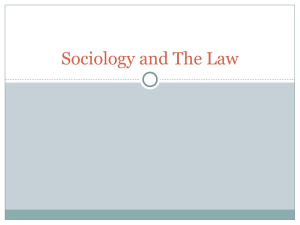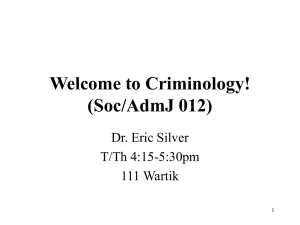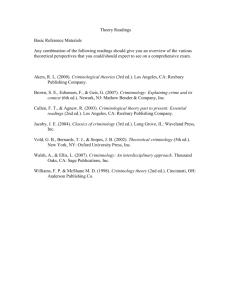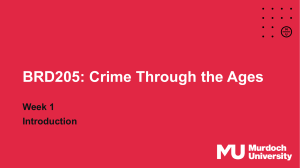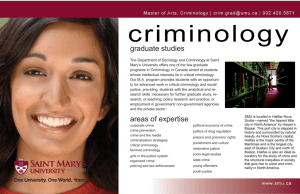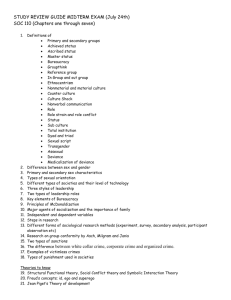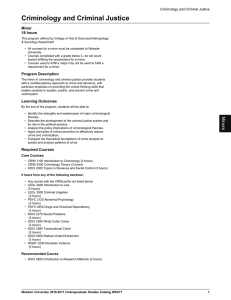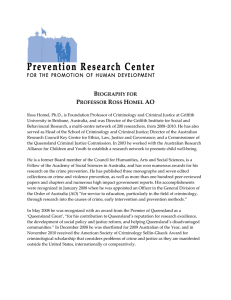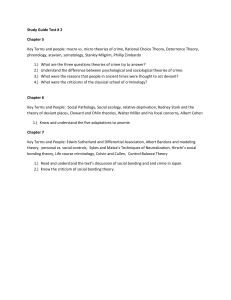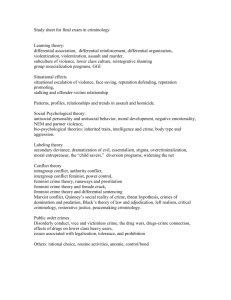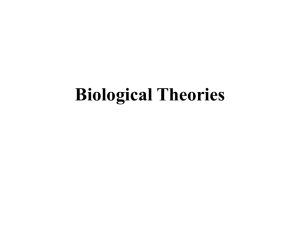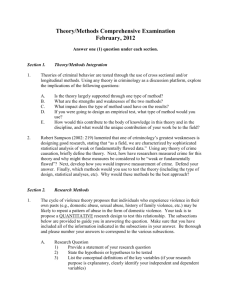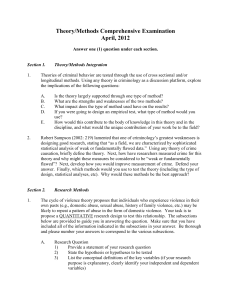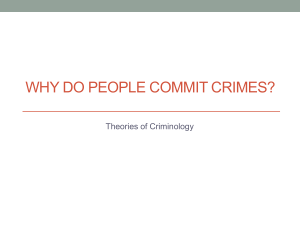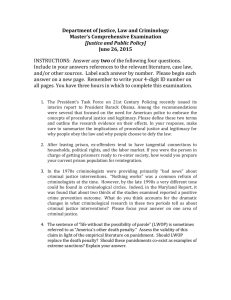criminology
advertisement
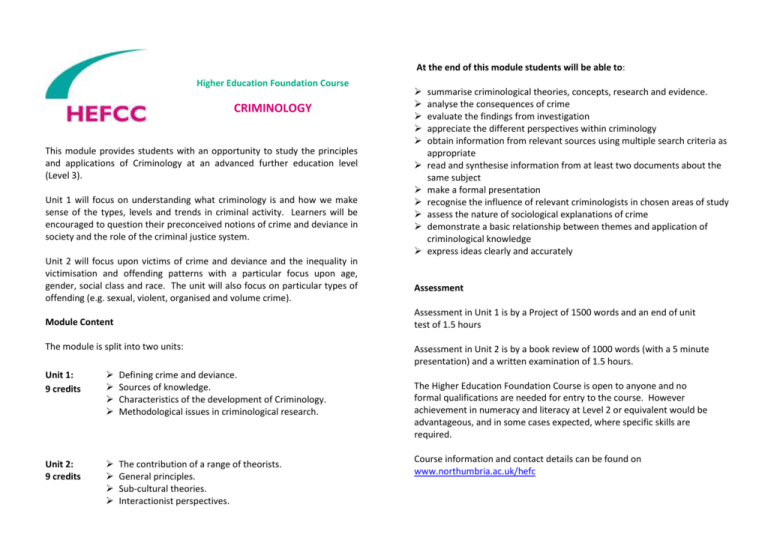
At the end of this module students will be able to: Higher Education Foundation Course CRIMINOLOGY This module provides students with an opportunity to study the principles and applications of Criminology at an advanced further education level (Level 3). Unit 1 will focus on understanding what criminology is and how we make sense of the types, levels and trends in criminal activity. Learners will be encouraged to question their preconceived notions of crime and deviance in society and the role of the criminal justice system. Unit 2 will focus upon victims of crime and deviance and the inequality in victimisation and offending patterns with a particular focus upon age, gender, social class and race. The unit will also focus on particular types of offending (e.g. sexual, violent, organised and volume crime). summarise criminological theories, concepts, research and evidence. analyse the consequences of crime evaluate the findings from investigation appreciate the different perspectives within criminology obtain information from relevant sources using multiple search criteria as appropriate read and synthesise information from at least two documents about the same subject make a formal presentation recognise the influence of relevant criminologists in chosen areas of study assess the nature of sociological explanations of crime demonstrate a basic relationship between themes and application of criminological knowledge express ideas clearly and accurately Assessment Assessment in Unit 1 is by a Project of 1500 words and an end of unit test of 1.5 hours Module Content The module is split into two units: Unit 1: 9 credits Defining crime and deviance. Sources of knowledge. Characteristics of the development of Criminology. Methodological issues in criminological research. Unit 2: 9 credits The contribution of a range of theorists. General principles. Sub-cultural theories. Interactionist perspectives. Assessment in Unit 2 is by a book review of 1000 words (with a 5 minute presentation) and a written examination of 1.5 hours. The Higher Education Foundation Course is open to anyone and no formal qualifications are needed for entry to the course. However achievement in numeracy and literacy at Level 2 or equivalent would be advantageous, and in some cases expected, where specific skills are required. Course information and contact details can be found on www.northumbria.ac.uk/hefc
